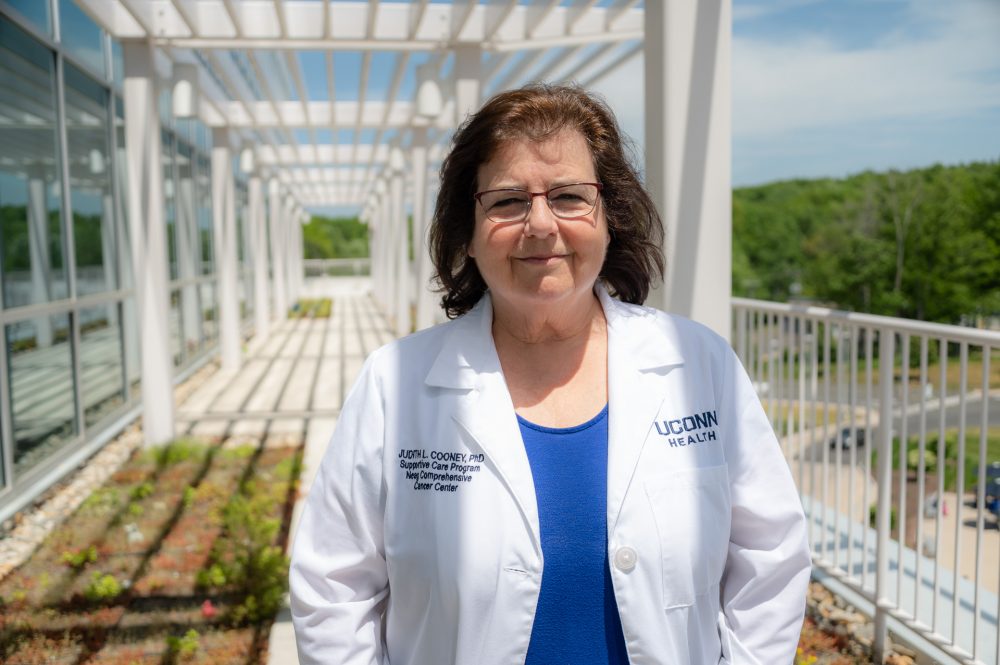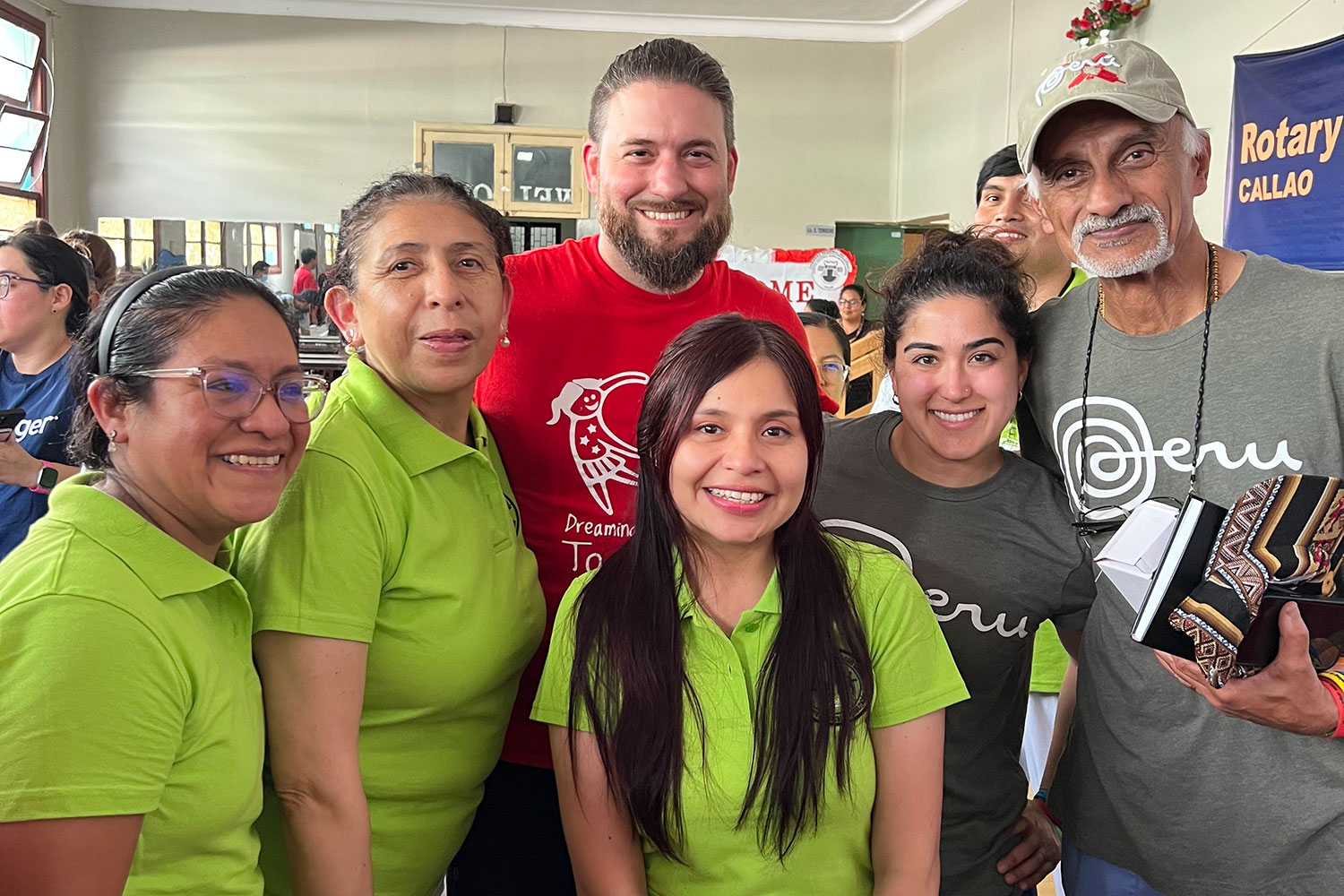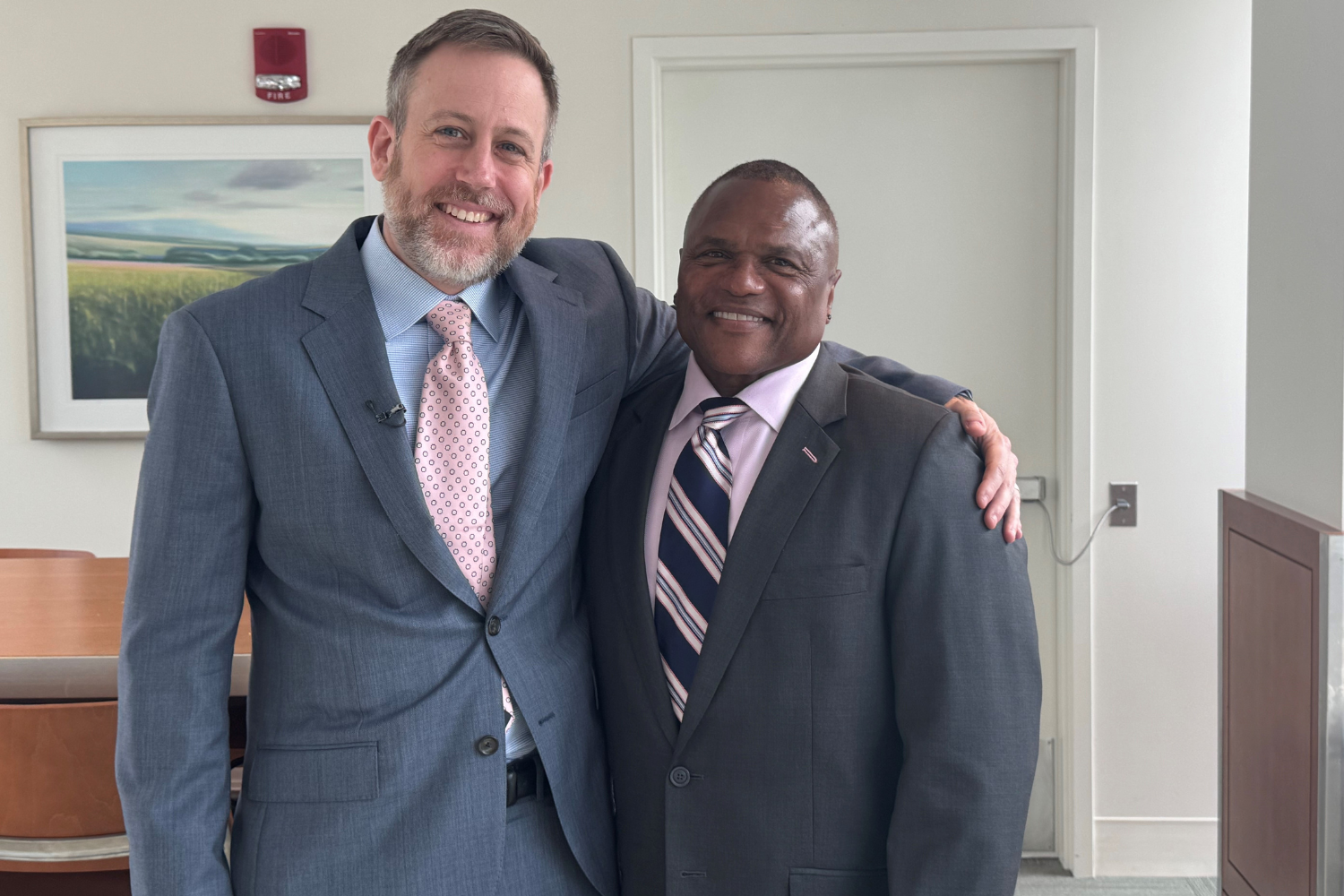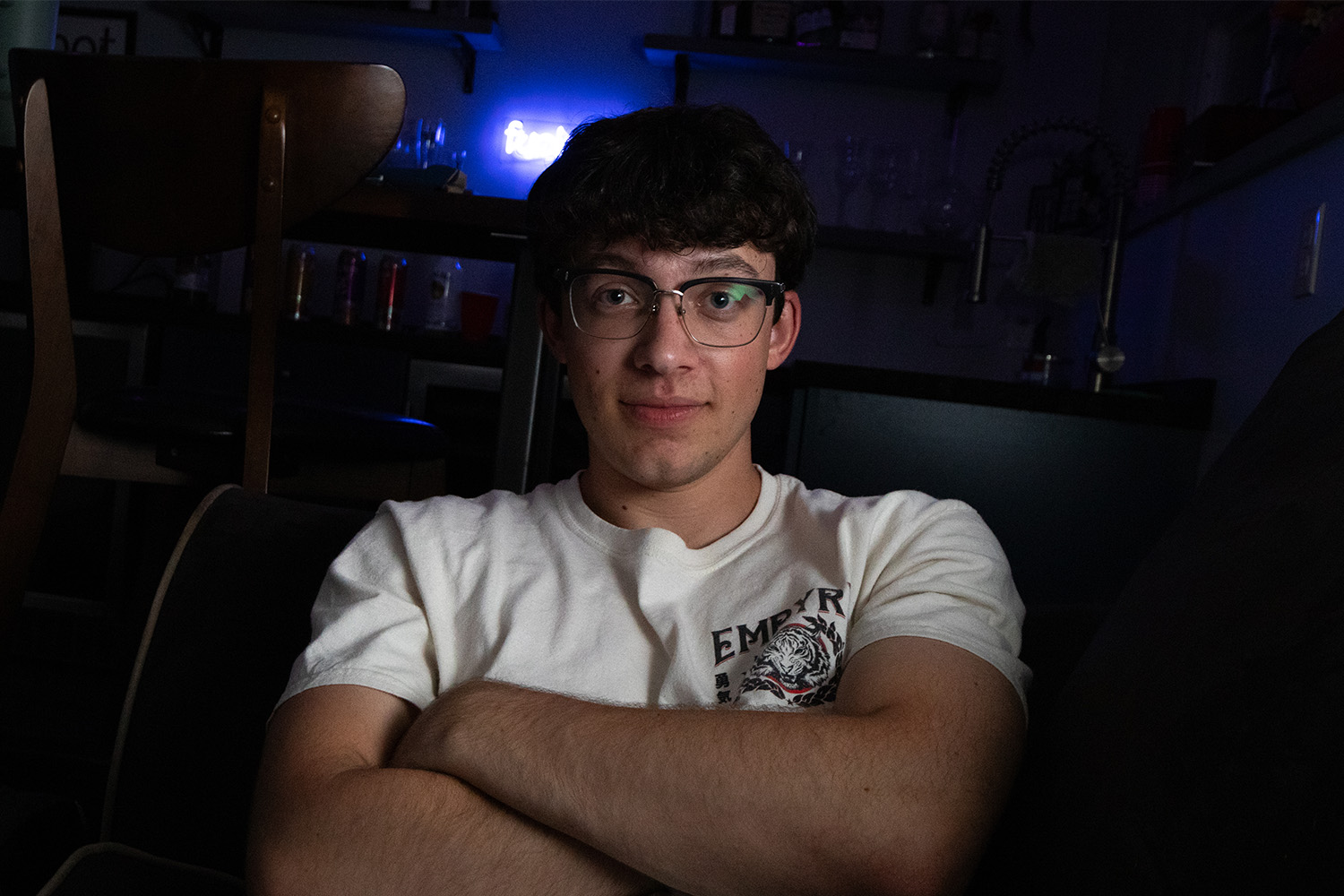Millions of adults and children in the United States are cancer survivors whose lives changed in an instant when they first learned of their cancer. Many say that although they were relieved when the treatment ended, it was hard to transition to a new way of life. There is an adjustment to residual symptoms, new challenges and feelings, changes in support, and different ways of looking at the world.
Cancer patients and survivors at the UConn Health Carole and Ray Neag Comprehensive Cancer Center have access to Judith Cooney PhD, health psychologist and associate professor of Psychiatry, to help them through these issues.
Cooney practices health psychology, a specialty area that applies psychological principles and evidence-based treatments to help manage the psychosocial impact of medical and health problems and to change health behaviors.
Cooney has been a faculty member in the Department of Psychiatry at the UConn School of Medicine since 1982, while working in various roles and creating many programs at the VA Connecticut, in Newington, CT. Her clinical and educational leadership positions included director, clinical health psychology program, director, Substance Use Intensive Outpatient Program, and she also served as VA site director, UConn Psychiatry Residency Program, and VA CT Newington Coordinator, Clinical Health Psychology Fellowship.
While at VA CT she created a range of health psychology programs assisting patients to cope with the challenges of medical disorders and change important health behaviors. In 1986, Dr. Cooney developed one of the first nicotine and tobacco treatment programs in the region and has since been active in clinical practice and program development, research, education, and public policy in the field. Given her expertise in nicotine and tobacco and general health psychology, she developed an interest in helping people with cancer and worked to develop a health psychology program for cancer patients at VA CT, Newington. Recently, her interest and work in cancer led her to her current role with the team at the UConn Health Carole and Ray Neag Comprehensive Cancer Center.
“I wanted to do something to provide goodness,” says Cooney. “To help change people’s lives at a time that is so difficult.”
Cooney works with those currently in treatment for cancer and those who are cancer survivors.
During National Cancer Survivor month we focus on her role with those who are post-treatment and in a new stage of dealing with cancer as a survivor.
“Often survivorship is the chapter in the cancer journey that gets the least support,” says Dr. Cooney. “It’s a transformative and frightening time after cancer changed their life.”
Cooney is there to help navigate how to reenter life after cancer. There are many issues cancer survivors may face, such as distress (which may also include anxiety and depression), worry or fear of recurrence, distress associated with upcoming scans and labs, returning to work and home responsibilities, insomnia, discomfort or pain, “fuzzy brain”, communication with family and treats, body image, and sexuality. Cooney uses short-term treatments based on Cognitive Behavior Therapies (CBT) and Acceptance and Commitment Therapy (ACT) to assist survivors in coping with these difficulties. Such treatments may include CBT to change unhelpful or distorted thinking that leads to distress, stress management strategies of relaxation training, mindfulness, CBT-Insomnia protocols to change sleep behavior, communication training, etc.
Cancer survivorship is a good time to adopt healthy behaviors to help prevent cancer recurrence and promote general health. Health psychology helps patients modify their behaviors to focus on wellness and health. Cooney provides a range of health promotion treatments for cancer survivors, including wellness programs (incorporating stress management, movement, and healthy eating), behavioral weight management, and nicotine and tobacco treatment.
She runs a smoking cessation program – “I CAN Quit – Nicotine and Tobacco Treatment for Individuals with CANcer”, where she has brought her 35 years of nicotine and tobacco use expertise specifically to help patients in the cancer center. This program provides evidence-based behavioral and pharmacological treatment to help cancer patients stop smoking and remain abstinent from tobacco for the long run. Cooney also assists in providing ancillary assistance in limiting excessive alcohol use, and illicit drugs that may interfere with cancer treatment. She indicates that by helping cancer patients adopt healthy behaviors, they become partners in their cancer treatment and health care, improve their outcomes, and can live healthier and happier lives.
Cancer is a transformative illness that may lead many people to re-examine their lives moving forward.
Cooney uses ACT informed treatments to help patients clarify their values and goals, and behave in accordance with those values and goals.
She stresses that cancer survivorship while challenging, can provide an opportunity not to just cope, but to grow and thrive.
It is a team effort at the Cancer Center to fulfill this with the post-cancer treatment team. Patients work with registered dieticians for a healthy eating plan and physical therapists for movement and exercise plans. Nurse practitioners help patients with medical concerns and schedules for continued scans and assessments, and social work provides support and case management services to patients and their families.
In the end, better outcomes emerge from cancer with a healthier lifestyle and well-being allowing patients the opportunity to thrive and shine.
“This work is my honor and amongst the most meaningful I’ve done in my lifetime,” says Cooney.



